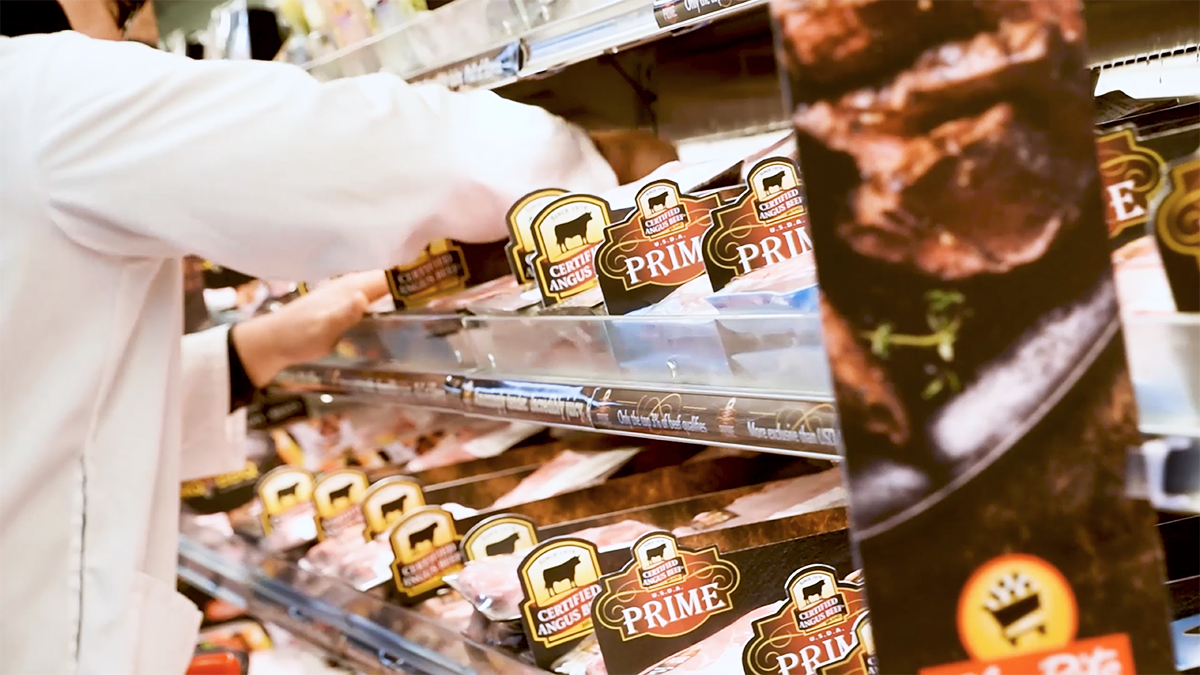
Myths of the consumer variety, courtesy of one bad article
This blog doesn’t get into the latest antics of the vegan-pushing animal rights groups. Most of our myths focus on something related to CAB or high-quality beef production, but I was so rattled by an article I recently read in Parents magazine that I felt compelled to deviate from the norm.
You see, my oldest is only 3 1/2, so I in no way consider myself an expert in the field of parenthood. I enjoy catching up on the latest research trends and tips on how others manage things like potty training, temper tantrums and traveling with toddlers.
I consider that mainstream publication to be a pretty good source of information.
But one area that I’ve learned quite a bit about in my lifetime is the beef business and when I read, “The Ultimate Guide to the Grocery Store” I knew they’d missed the mark. (They’ve also left me wondering what other topics, that I’m not so familiar with, have they fed me a line of bull on…)
In the meat case it suggested we all buy organic. One reason? “The animals were treated more humanely.” (Are all of you “conventional” producers a little dumbfounded or downright disappointed?) Other tips included eating grassfed beef because it’s healthier and beef without anitibiotics so you don’t get “drug-resistant superbugs.”
I’m all for choice in the meat case, but spreading misinformation and half-truths doesn’t do consumers any favors.
I’m sure you’ve all had neighbors, relatives or even airplane seatmates bring up similar far-flung tales about beef production in general conversation. This happens to me all the time. Sometimes I correct them and sometimes I think, “Do even I know the best way to combat this one?”
So today’s myth is kind of a copout on my part, I’m letting somebody else do the answering.
Myth—I have to have all the facts to set fellow consumers straight on beef production myths.
Fact—There are many resources out there,and plenty of places to point people toward for more information.
Some of these include the Explore Beef site,sponsored by the Beef Checkoff or their Master of Beef Advocacy Program. Many Extension websites are packed with good tidbits on these highly scientific subjects and state cattlemen’s associations can often help.
But today I want to highlight a website by the American Meat Institute that Laura talked about around the time it launched: Meat Mythcrushers.
Here’s a sampling of the topics that are covered in short, easy-to-understand video interviews with meat scientists (i.e. experts in this field):
- Hormone use in beef production is a health concern
- Meat is less safe today than it was in the past
- Feeding cattle corn is unnatural
I can guarantee I’ll be watching a few of those segments before I write my Letter to the Editor later this week!
And I guess the more I think about it, this myth is highly related to quality beef production. After all, you have to have a customer who wants your product to have demand and that’s something every producer should be concerned about.
May your bottom line be filled with black ink,
Miranda
You may also like
Success, Despite Challenges
Today’s market is complex and competitive. The collective effort of stakeholders across the supply chain positions Certified Angus Beef to meet the record demand for premium beef moving forward. Signals across the beef industry are clear and Angus farmers and ranchers seeking high-quality genetics that deliver premium beef are producing a product in high demand.
Keep the Supply Coming
A record-high 800 registrants from 17 countries gathered in Austin, Texas, to learn more about CAB, become inspired by the culinary work of chefs and pitmasters, and celebrate sales and production success. But at the forefront: supply and demand, a reflection of the chaotic past year, and preparing for what’s ahead.
Consumer Demand, Power of Quality
Demand for high-quality beef persists. But with that demand comes challenges. From tight cattle supplies to higher costs and increasing pressure on retailers to deliver a consistent eating experience, the pressure is on. David O’Diam, CAB VP of retail, addressed the current retail beef environment, highlighting both opportunities and challenges in today’s marketplace.




